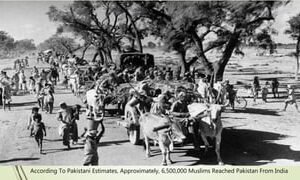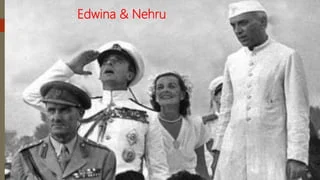
INITIAL PROBLEMS OF THE ISLAMIC REPUBLIC OF PAKISTAN
BACKGROUND:
Under the 3rd June Plan (1947) provincial assemblies were given an option to join either of the two states (Pakistan or India). Over whelming majority of the members in the Punjab and Bengal assemblies decided to join Pakistan. Since members of the non-Muslim majority districts in these provinces voted for partition of their respective provinces, separate commissions were set for the demarcation of boundaries in the two provinces with Cyrill Radcliffe a British lawyer, as the joint chairman of both commissions.
Partition was conducted in a way which manifested naked bias and injustice towards the Muslims. The Quaid-e-Azam had proposed that the task of demarcation should be entrusted either to an impartial commission appointed by the United Nations or to the members of the British ‘Privy Council’ (the highest British court.) The proposal was turned down by the British government. Viceroy Lord Mountbatten had very close friendly relations with the Congress leadership and was a great sympathizer of the Congress point conditions prevailing in the sub-continent; Cyril Radcliffe had never set foot on the Indian the most suitable person he could easily influence.
The Muslim League did not favour the partition of the provinces, but if at all it was inevitable it would have been carried out in the light of the principles stipulated by Mountbatten himself. At one time he had said that Gurdaspur and Firozpur, and Tehsils of Zira and Fazilka will form part of Pakistan.
Radcliffe Award and Its Injustices
Radcliffe amounced his Award, on the demarcation of boundaries, on August 17, 1947 following provisions of the Award were unjust from Pakistan’s point of view;
Flouting the pronounced partition principles in the Punjab; district Gurdaspure and Ferozpur Zira and Fazilka Tehsils were given to India. In the eastern part, the city of Clacutta (now Kolkata), district of Murshidabad and the Nadia areas were annexed with India without any justification. On all these areas Pakistan had a claim as its natural parts under the partition norms.
Radcliffe had finalized his task up till August 8, 1947. A member of the Boundary Commissions Justice Muhammad Munir, later disclosed that in his original plan, Radcliffe had agreed to include Ferozpur, Zera, a prat of Tehsil Fazilka and the Ferozpur Headwork’s in Pakistan, but Surprisingly when the Award was announced on 17th of August, all these areas went to the Indian share, Observers believe that this was done on Mountbatten’s insistence.
Apart from these areas ‘The Pakistan Times’ indicated injustices done in certain areas, for example Tehsil Batala was a 55 percent Muslim majority area, the city of Batala had a nice industrial base, mainly dominated by the Muslim industrialists. Similarly, Tehsil Ajnala and the Amritsar district had sixty percent Muslim majority, all these areas were given to India.
Results of the Injustices done in the Partition
The Kashmir Issue:
First seeds of the Kashmir problems were sown by the Radcliffe Award. Inclusion of Gurdaspur gave India an access to Kashmir, the only land routes that connected India with Kashmir passed through Pathan Kot, a Tehsil of district Gurdaspur. If Gurdaspur were not made part of India there would be no land access for India to reach Kashmir.
The Fate of Calcutta:
Calcutta (now Kolkata) was the largest industrial city in India Population of the city contained 25 percent Muslims and 60 percent outcast Hindus (Achhoots). Achhoots wanted their city to be included in Pakistan; Radcliffe gave the city to India against the will of the citizens of Calcutta.
Problems Created by the Migration:
Decision of partitioning the Punjab was sudden and unexpected. Large numbers of the Muslims had to be evacuated from the East Punjab for which no arrangements had been made. On their way to Pakistan hundreds of thousands of refugees were attacked, maltreated and assassinated by the Sikh militants. This blood drenched migration brought untold misery and sorrow and created innumerable economic and cultural problems.

